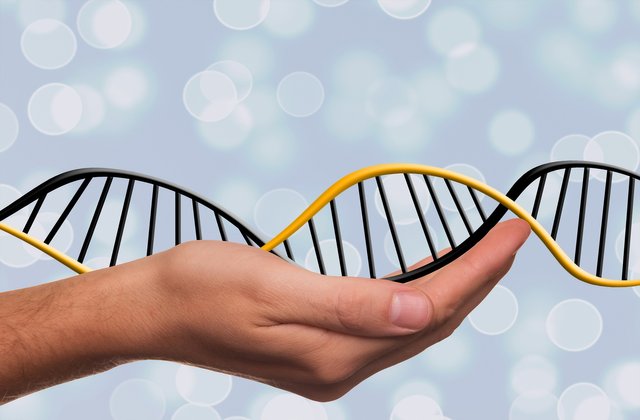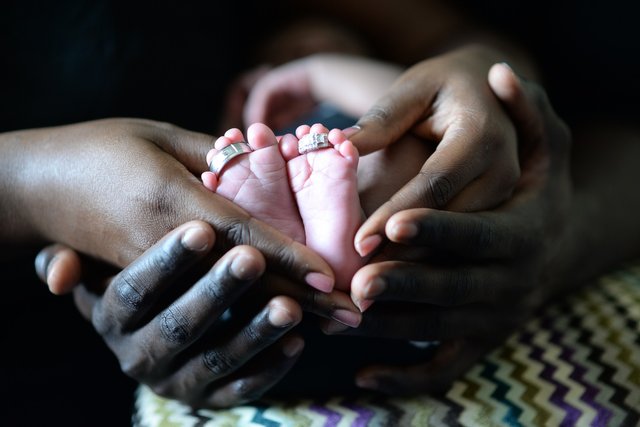We live in a blissful cloud of ignorance. Sometimes, that cloud clears whether or not it is welcome.

Image by Gerd Altmann from Pixabay
Genetics in Our Society
The use of genetics in odur society tends to remove us from a blissful state. The technology delves into our very sequencing to discover otherwise hidden truths about our biology that we would have chosen not to know. Hidden truths, for instance, that once served to afflict us while unaware of its existence until too late. Genetics provides a way to combat ailments that were otherwise incurable in the past. However, it would also serve to introduce the likelihood of haunting choices patients can face. Our sense of duty guides us towards the best possible path to deal with the knowledge Genetics brings.
Immanuel Kant
Immanuel Kant, a European philosopher from the 1700s, developed the criterion of duty. In this criterion, Kant holds that we must fulfill hypothetical and categorical duties throughout our lives (Kant - IEP). While hypothetical duty varies with the need of the individual, absolute duty is universal and applies to all for all time (ibid). Stemming from the categorical duty is the categorical imperative. The imperative holds that you must act only by the maxim you choose to hold as universal (Kant, 1785). An imperative, according to Kant, represents a “subjective principle of action,” and is different from the “objective principle of law” (ibid). Kant’s position in ethics presents an interesting dilemma when faced against a technology, for instance, like DNA sequencing and the haunting truth it can reveal.

Image by Oxford Nanopore from The Guardian
The Human Genome Project
The human genome project was a 13-year, multi-billion dollar project completed in 2003 (ORNL, n.d.). At least three billion chemical base pairs in our DNA were sequenced. The human genome, with today’s technology, can now be sequenced in a matter of hours with a USB-sized computer (Kollewe, 2012). Gene data, once only available to learned professionals in our society, is now accessible to any member of the general public for slightly more than the cost of an iPod© (23andMe©). The potential revelations this technology will challenge our ethical society for the foreseeable future. The purpose of this writing is twofold: discuss and solve the ethical dilemma related to women’s right to: choose her child’s life or abortion.
A Dilemma Revealed
The hopes for this technology currently outweigh and outpace the moral dilemmas it presents. Take, for instance, the following scenario: Doctors notify a mother that she was again pregnant. During a regular checkup with their doctor, one month later, the mother, as well as her son and unborn child, get their DNA sampled. She does this as a matter of curiosity as her father had Huntington’s disease. The doctor later informs her that while the her does not have the gene for this disease, she and her unborn child, a daughter, have tested positive for it.
Huntington’s disease (HD) is a sentence of death and suffering (Raven, 2010). You are impaired quickly while sometimes waiting decades for the disease to take you (NOVA, 2012). There is no cure, and the treatments available only alleviate some of the symptoms (WebMD, n.d.). Unlike recessive genetic disorders, HD only requires one gene from the mother or father to be passed on to the child for the disease to be present. Since the son does not have the HD gene, he will never have to worry about falling prey to this illness. The mother and daughter are guaranteed to get it at some point in their lives.
There is little time available for deciding the fate of her daughter. Herein lies the dilemma: Should the mother abort the child or allow the pregnancy to continue? In either decision, doom for the child is inevitable. If the child is born, the family will undoubtedly give her the best experiences of life possible. Many children in today’s society would not be able to boast such possibilities. Unfortunately, that child’s potentially rich life experiences become irrelevant as the debilitating disease takes its hold upon the daughter’s body. If the mother decides to abort her daughter, she is spared from the debilitating disease, but will never experience the planned life experiences.
Imagine first that the mother decides against abortion. How could the child live with the knowledge that she is guaranteed to have Huntington’s disease? Any chances of having her child without the HD gene are the same as the mother’s: 50/50. All of her associations in life develop with the foreknowledge that her path tragically ends. How can the unborn child possibly have a healthy life? The sad truth is: the knowledge provided through the use of technology, in this case, robs someone of the bliss otherwise available with ignorance.

Image by Free-Photos from Pixabay
Aborting the child is simultaneously a cruel and ethical act in this dilemma. Immanuel Kant’s Categorical Imperative of Duty supports the mother’s option to abort her child, but only if the mother holds that this path is always right. Let us say, for example, that the mother believes killing is wrong. If that is the case, then according to Kant’s Imperative, killing is always wrong, and the mother must have the child. However, should the mother’s maxim be that killing is permissible under certain circumstances, then the abortion is possible. Therefore, the mother would not be killing the child, as much as preventing the child’s inevitable suffering and death. The mother’s haunting choice centers upon the fact that, despite the intent of either choice, doom shall fall upon the child.
Keeping the daughter, in this scenario, represents an unethical decision by the mother. Once the disease is active, and while the mind is alert, the body tortuously ceases to function (Raven, 2010). Her entire life will be affected just by being diagnosed with the gene. If allowed to live, the mother has sentenced the child to suffer based on the mother’s beliefs. Sentencing the child to suffer is contrary to Kant’s second formulation of the Categorical Imperative of Duty. The second formulation holds that we should treat others as we wish treatment upon ourselves — choosing to keep the child alive as a means to uphold personal beliefs is wrong and inconsistent with Kant’s principles. All hopes associated with keeping the child alive become irrelevant as that child’s mental and physical state decline with the disease.
Fate promises tomorrow to no one. Despite any analysis of the mother’s potential actions, the ultimate decision lies with the mother’s right to choose. We will never be truly qualified to make such a decision for the mother. We can only argue against a mother’s potential choice to have her daughter, but in reality, the future is not set. Treatment for Huntington’s disease could be available, although unlikely, during her daughter’s lifetime. We do not know. What is most important about our dilemma is that we discuss the ramifications of her potential decisions so that she can make the best decision possible.
Closing
Thank you everyone for taking the time to read this blog. It is my first here at Steem and I hope to write many more. The intent of this article is not to suggest that my personal beliefs are for or against abortion. It is only to discuss the right or wrong of a decision according to one's beliefs.
Congratulations @scholaris! You have completed the following achievement on the Steem blockchain and have been rewarded with new badge(s) :
You can view your badges on your Steem Board and compare to others on the Steem Ranking
If you no longer want to receive notifications, reply to this comment with the word
STOPVote for @Steemitboard as a witness to get one more award and increased upvotes!
Downvoting a post can decrease pending rewards and make it less visible. Common reasons:
Submit
Thank you for informing me of this award. I look forward to gaining more as I learn.
Downvoting a post can decrease pending rewards and make it less visible. Common reasons:
Submit
You're welcome @scholaris
The entire Steemiboard team wishes you all the best for 2020! Have a Happy New Year ✨🥂✨
Downvoting a post can decrease pending rewards and make it less visible. Common reasons:
Submit